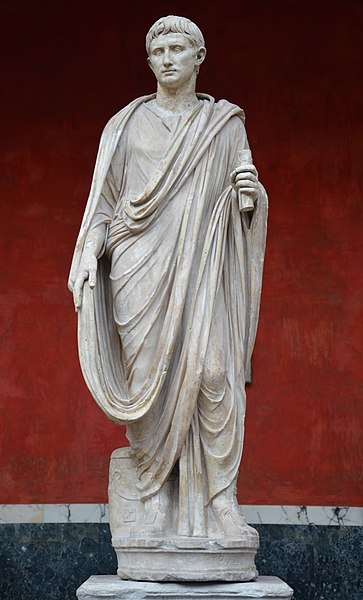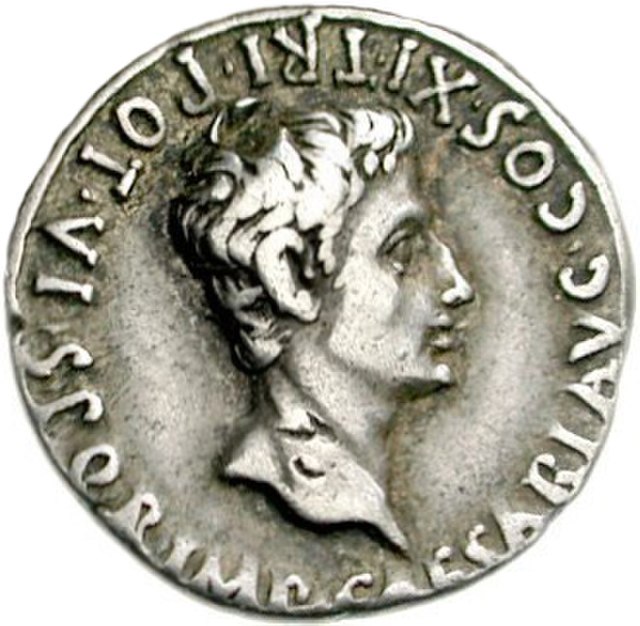Diocletian, nicknamed Jovius, was Roman emperor from 284 until his abdication in 305. He was born Diocles to a family of low status in the Roman province of Dalmatia. Diocles rose through the ranks of the military early in his career, eventually becoming a cavalry commander for the army of Emperor Carus. After the deaths of Carus and his son Numerian on a campaign in Persia, Diocles was proclaimed emperor by the troops, taking the name Diocletianus. The title was also claimed by Carus's surviving son, Carinus, but Diocletian defeated him in the Battle of the Margus.
Laureate head of Diocletian
Panorama of amphitheatre in Salona
Head of Carinus at the Centrale Montemartini
Aureus of Diocletian, minted c. 288
The Roman emperor was the ruler and monarchical head of state of the Roman Empire, starting with the granting of the title augustus to Octavian in 27 BC. The term "emperor" is a modern convention, and did not exist as such during the Empire. Often when a given Roman is described as becoming emperor in English, it reflects his taking of the title augustus and later basileus. Another title used was imperator, originally a military honorific, and caesar, originally a surname. Early emperors also used the title princeps alongside other Republican titles, notably consul and pontifex maximus.
Bust of Augustus wearing the corona civica
Augustus depicted as a magistrate at the Ny Carlsberg Glyptotek
Cameo of Augustus in a quadriga drawn by tritons at the Kunsthistorisches Museum, Vienna
Denarius of Augustus (18 BC).








